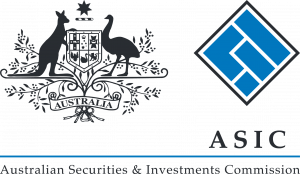 Justice Beach of the Federal Court today found that Westpac engaged in unconscionable conduct under s12CC of the Australian Securities and Investments Commission Act 2001 (Cth) by its involvement in setting the bank bill swap reference rate (BBSW) on 4 occasions.
Justice Beach of the Federal Court today found that Westpac engaged in unconscionable conduct under s12CC of the Australian Securities and Investments Commission Act 2001 (Cth) by its involvement in setting the bank bill swap reference rate (BBSW) on 4 occasions.
In civil proceedings brought by ASIC, the Court found that on these occasions, Westpac traded with the dominant purpose of influencing yields of traded Prime Bank Bills and where BBSW set in a way that was favourable to its rate set exposure.
The court also found Westpac had inadequate procedures and training and had contravened its financial services licensee obligations under s912A(1)(a), (c), (ca) and (f) of the Corporations Act 2001 (Cth)
His Honour said in his judgement, “Westpac’s conduct was against commercial conscience as informed by the normative standards and their implicit values enshrined in the text, context and purpose of the ASIC Act specifically and the Corporations Act generally.”
A further hearing of this proceeding on penalty and relief will be held on a date to be determined.
Background
ASIC commenced legal proceedings in the Federal Court against the Australia and New Zealand Banking Group (ANZ) on 4 March 2016 (refer: 16-060MR) and against National Australia Bank (NAB) on 7 June 2016 (refer: 16-183MR).
On 10 November 2017, the Federal Court made declarations that each of ANZ and NAB had attempted to engage in unconscionable conduct in attempting to seek to change where the BBSW was set on certain dates and that each bank failed to do all things necessary to ensure that they provided financial services honestly and fairly. The Federal Court imposed pecuniary penalties of $10 million on each bank (refer: [2017] FCA 1338).
On 20 November 2017, ASIC accepted enforceable undertakings from ANZ and NAB which provides for both banks to take certain steps and to pay $20 million to be applied to the benefit of the community, and that each will pay $20 million towards ASIC’s investigation and other costs (refer: 17-393MR).
On 30 January 2018, ASIC commenced legal proceedings in the Federal Court against the Commonwealth Bank of Australia (CBA) (refer: 18-024MR).
On 8 May 2018, CBA announced that ASIC and CBA reached an in-principle agreement to settle ASIC’s claims (refer: CBA ASX Announcement). CBA and ASIC will be making an application to the Federal Court for approval of the settlement.
ASIC has previously accepted enforceable undertakings relating to BBSW from UBS-AG, BNP Paribas and the Royal Bank of Scotland (refer: 13-366MR, 14-014MR, 14-169MR). The institutions also made voluntary contributions totaling $3.6 million to fund independent financial literacy projects in Australia.
In July 2015, ASIC published Report 440, which addresses the potential manipulation of financial benchmarks and related conduct issues.
On 28 March 2018, Parliament passed legislation to implement financial benchmark regulatory reform.
On 21 May 2018, the new BBSW calculation methodology commenced, calculating directly from market transactions during a longer rate-set window and involving a larger number of participants. This means that the benchmark is anchored to real transactions at traded prices (refer: 18-144MR).











